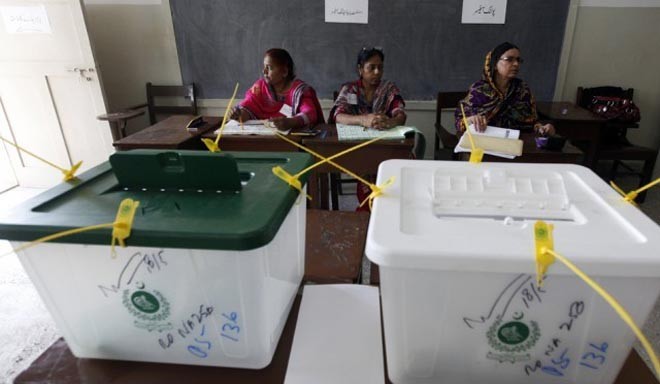

Disappointing changes have been recently witnessed in respect to the revival of elected local governments. The Tehreek-e-Insaaf-led coalition KP government is mired by the dent caused by dissident MPAs. While the party supremo has come out clearly that no change in date and scheme of local government elections -- scheduled for April 30, 2014 -- shall be made, political pundits are still doubtful.
The Punjab and Sindh governments do not seem to be prepared to put to test the popularity of their respective party positions. The PML-N has seen an increase in its ranks of dissenters while the PPP is only too happy to outfox the rival Haq Parast leadership with new laws and corresponding administrative arrangements. The law of consolidating the function of solid waste management at the provincial level has actually made a mockery of articulation in service responsibilities. Neither the provincial government seems to be interested in delivering the service itself nor it is prepared to let the municipalities undertake their routine functions. If there are any sufferers, they are the ordinary citizens.
The political leadership considers local bodies as a challenging rival, not a collaborating arm. This feeling is especially widespread amongst the henchmen who control provincial tiers of respective parties. It is correct that the local government systems have been sustained by military dictators for their own vested interests but this fact does not undermine the merits and opportunities inbuilt in it. Foremost in this respect is the creation of a legitimate avenue for leadership development.
In an arena where dynastic and aristocratic claims to leadership overtake merit at every end, the only option which can enable future political leadership to emerge is local government. There are hundreds of case studies pertinent to ordinary councilors, women/labour councilors, union council nazims, town/tehsil/taluka level leaders and district level representatives who were able to win their offices purely on merit and later proved their popularity through re-election. Even in the most dangerous labyrinths of Khyber Pakhtunkhwa and Balochistan, these dedicated public representatives made unstinting efforts to address pressing problems related to education, health, social welfare and area management. Some of them were even devoid of any political affiliation and had to face the wrath of both right and left wing parties.
The two elections during 2001 and 2005 were reasonable tests for their performance-evaluation, mal-functioning of electoral process notwithstanding. Real political culture cannot be nurtured without frequent practice of voting process along the party cadres, local, provincial and national assemblies. All praise to the Balochistan government that conducted local bodies’ polls recently in the most trying circumstances. It is disappointing to note that the parties that demand for promotion of democracy are probably the outfits closest to dictatorship.
People need an efficient service delivery mechanism and complaint redressal system for routines such as attestation, verification and certification of various kinds. Local institutions and their elected members are normally forthcoming in such tasks. Small scale development schemes, maintenance and repair projects are also important works that require immediate attention.
If the decision-making apparatus is centralised in the provincial headquarters and in the person of chief minister, very little progress can be expected. Expectation from bureaucrats alone to be sympathetic to the local issues may not be very realistic.
A well-functioning local government system in urban and rural domains has to be strengthened after removing the various handicaps that it has faced. Problems identified during the past eight years include poor quality of human resource, paucity of operational budgets, weak mechanism of monitoring, absence of effective audit and accounts procedures, financial dependence on the provincial/federal government, lack of control over police force, tutelage exercised by federal/provincial institutions and inability to generate development finance for local scale works. One finds more developed cities like Karachi struggling with shortage of funds to strengthen vital services such as fire fighting. Many other contexts are even worse in service delivery outreaches.
Politicians may evolve a fresh strategy by using elected local government to serve their manifestoes. Capacity-building in the local service delivery; notification and enaction of bodies such as public safety commissions, citizen community boards or finance commissions; development of municipal services as specialised cadres; launch of appropriate taxes to generate local revenue and the acceleration of mass contact to stretch the outreach of this tier are some basic steps.
Gradual enrichment of the present system requires frank dialogue with all concerned parties. It must be remembered that democratic provincial governments in Sindh and Punjab will do the greatest injustice to themselves if they do not engage with their constituencies on a continuous basis. And local governments obviously make an effective platform to nurture democracy.